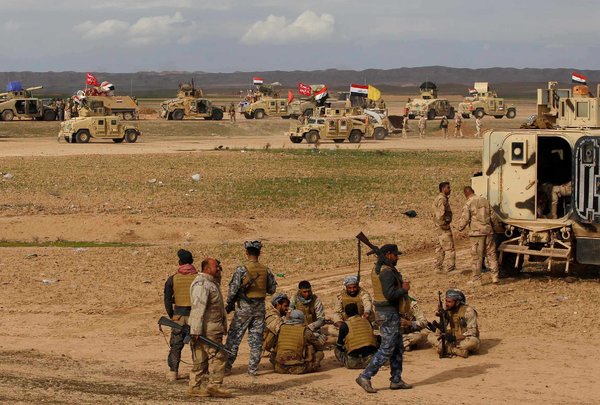Iraqi officials arrest American, Israeli military advisors on suspicion of aiding ISIS

Iraqi counter-terrorism forces allegedly arrested four foreign military advisors to the Islamic State over the weekend.
According to the Iranian Tasnim News Agency (TNA), three of the advisors were reportedly carrying US and Israeli passports, while the fourth was identified as a national from an Arab state in the Persian Gulf.
According to the TNA, the four advisors were captured in Iraq's Nineveh province after Iraqi counter-terrorist forces launched an operation codenamed "Operation Scorpion Sting" last weekend. The operation targeted an Islamic State headquarters located in the province, from where the ISIS allegedly coordinates in activities in Nineveh.
Iraqi security forces found the four military advisors inside the Islamic State facility. They were subsequently arrested and taken to a security facility in Baghdad.
Members of Iranian parliament were quick to speak out on the arrest of the advisors. Seyed Fathollah Hosseini urged the United Nations to take against the US.
"The United Nations should not remain silent over the presence of American military commanders in the terrorists' headquarters," Hosseini told TNA in a separate interview.
Another Iranian MP, Mohammad Saleh Jokar, accused the United States of deliberately assisting ISIS and having alterior motives in leading a coalition against the Islamic State.
Relations between the United States and the Iraqi government have been tense since Baghdad launched a massive offensive last week to reclaim Tikrit from elements of the Islamic State.
According to the New York Times, disagreements have surfaced between Washington and Baghdad regarding the American timetable for the offensive against ISIS and Iran's involvement in the current operation in Tikrit.
Iraqi government officials are reportedly frustrated at what they describe as the "sluggish" pace at which the US is planning its offensive to liberate Mosul in Western Iraq, while the US is worried that the Iranians' involvement will revive the sectarian divide between Sunni and Shi'a Muslims in Iraq that ISIS has previously taken advantage of.











